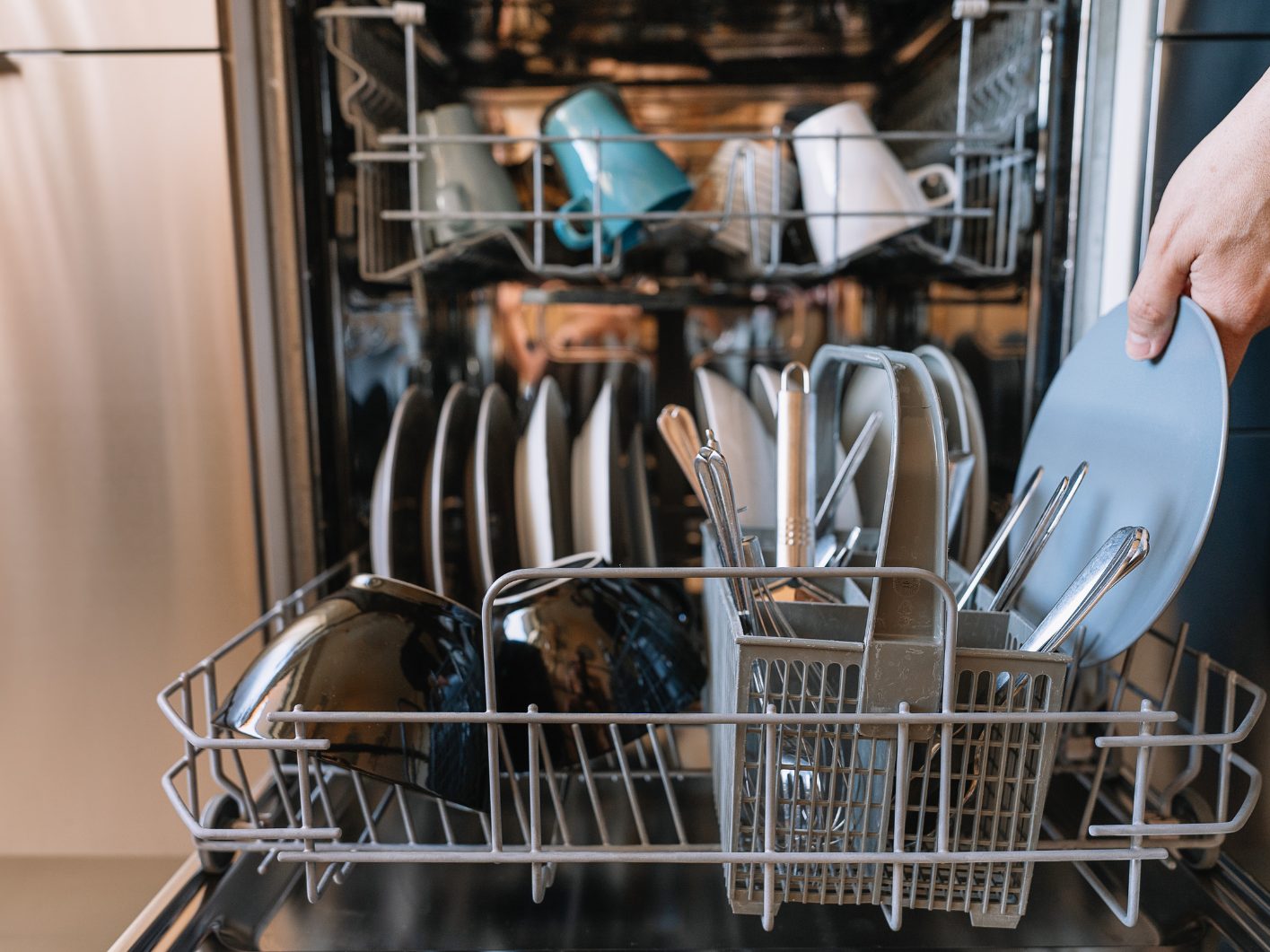Sure, here is the translation:
```html
This is How to Make Your Dishwasher More Efficient: Six Common Mistakes and Solutions
```

Here's how to improve the performance and longevity of your appliance:
1. Not Pre-Rinsing Dishes
Many people think that the dishwasher can easily remove coarse dirt – but food residues can lead to clogs and impair cleaning performance. Plates and pots should therefore be cleared of large food residues before being placed in the machine.
Tip: Scrape off large food residues, but avoid excessive pre-rinsing – modern dishwashers are designed for lightly soiled dishes.
2. Improper Loading
An overloaded or improperly loaded dishwasher can cause the spray arms to be blocked and the water not to reach all surfaces. The result: poorly cleaned dishes.
Tip:
Place large plates on the outside, smaller ones in the middle of the lower rack.
Put glasses and lightweight plastic items in the upper rack.
Mix cutlery to avoid jamming.
3. Incorrect Water Temperature
Water that is too cold can result in dishes not being properly cleaned. The ideal temperature is between 49°C and 66°C – lower temperatures are often insufficient to remove grease and bacteria.
Tip: Ensure your water heater is set correctly so that the dishwasher operates at the optimal temperature.
4. Incorrect Use of Detergents
Not every detergent is suitable for every water hardness. Incorrect cleaning agents can lead to lime deposits or poor cleaning.
Tip:
Hard water? Use a detergent with a softener or additional rinse aid.
Soft water? Use less detergent to avoid foam residues.
5. Incorrect Wash Cycle Selected
Many people always use the same wash program, but depending on the level of soiling, this can be ineffective.
Tip:
Lightly soiled dishes: Short or eco wash cycle.
Dried-on residues or greasy dishes: Intensive or high-temperature cycle.
6. Not Cleaning the Filter
A dirty or clogged filter can cause food residues to return to the dishes – making the wash cycle ineffective.
Tip:
Remove the filter once a week and clean it under running water.
Also, regularly wipe the seals to prevent deposits.
(Glomex/Red)
This article has been automatically translated, read the original article here.





